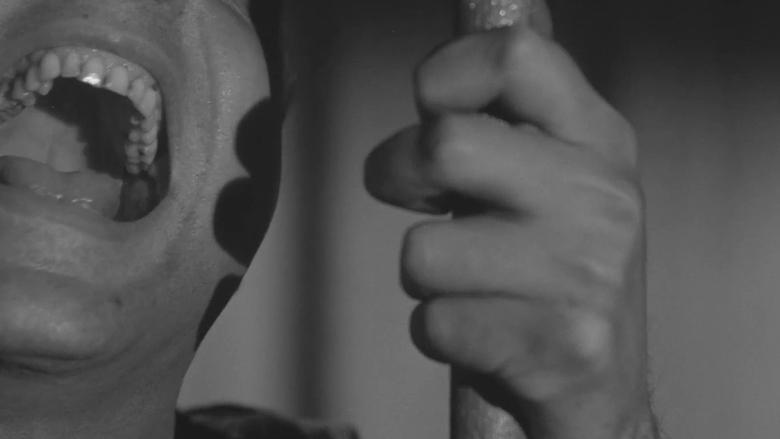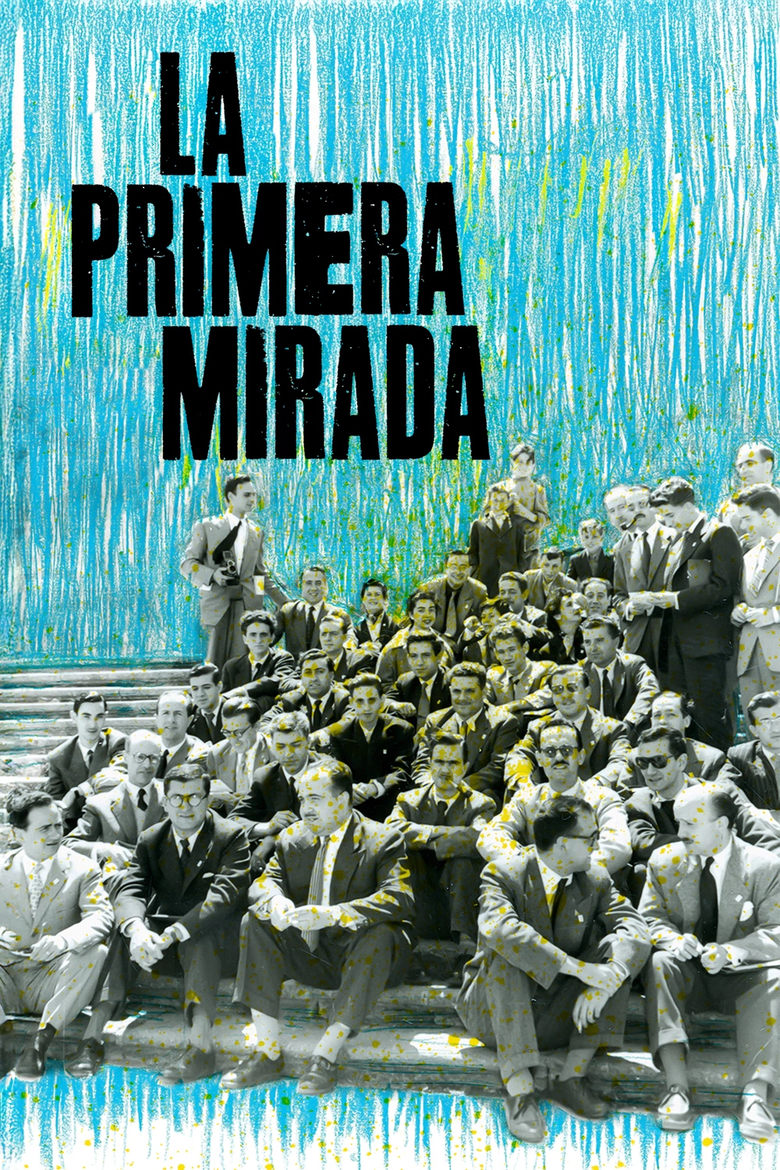Loading


The First Look
Genres
DocumentaryHistory
Overview
In Spain, a poor country ruined by the recent Civil War (1936-39), and in the midst of Franco's dictatorship, a film school was created in Madrid in 1947, which became, almost unintentionally, a space of freedom and pure experimentation until its closure in 1976.
Details
Budget
$0
Revenue
$0
Runtime
75 min
Release Date
2024-04-07
Status
Released
Original Language
Spanish
Vote Count
1
Vote Average
7
Cast
Meet the talented actors who bring the movie to life.
Aitana Sánchez-Gijón
Self - Narrator (voice)
Pedro Casablanc
Self - Narrator (voice)
Similar Movies
Explore movies similar to this one that you might also enjoy.
0.0
Actor
"Actor" is China's first documentary film to explore the virtues and skills of actors. The film takes the "Twenty-Two Big Movie Stars of New China" as the starting point. It will explore the film experience and artistic achievements of the older generation of artists, explore their insights and thinking about the profession of actors for more than half a century, and pay tribute to the century-old Chinese film with the classic film images they created.
2021-10-30 | zh
5.8
Desperate Souls, Dark City and the Legend of Midnight Cowboy
This is not a documentary about the making of Midnight Cowboy. It is about a humane and groundbreaking masterpiece and the flawed but gifted people who made it. It is about a troubled era of cultural ferment, social and political change, about broken dreams and strivers, then and now. It is about an era that made a movie and a movie that made an era.
2023-06-23 | en
7.0
Discovering Cinema: Learning to Talk
Documentary illustrating the birth of sound cinema.
2003-12-31 | fr
7.0
The Lot of Fun: Hollywood’s Fun Factory
A documentary about film producer Hal Roach.
2014-05-29 | de
5.6
1212. The Battle of Las Navas de Tolosa
On 16 July 1212, a Crusader army made up of Castilians, Aragonese and Navarrese (but also French, English and Germans) confronted the army of the Almohad Caliph an-Nasir at the foot of the Sierra Morena mountain range. The Battle of Las Navas de Tolosa, as the battle is known, is considered the most important battle of the Middle Ages on the Iberian Peninsula and is a key event in the history of Spain. More than 800 years later, a group of archaeologists and specialists have begun an archaeological study of the battlefield. Is everything that has been said about the battle true? What secrets does the terrain hide? And, above all, what can we learn today about events that took place hundreds of years ago and that pitted tens of thousands of people against each other in the south of our country?
2023-11-02 | es
6.4
Bikini
Spain, 1953. Pedro Zaragoza, mayor of the city of Benidorm, in the province of Alicante, by the Mediterranean Sea, visits the Palacio del Pardo, General Franco's residence in Madrid, to ask him for help, in the hope of solving a very delicate problem.
2014-03-14 | es
5.9
The Demise of ETA
The chronicle of the process, ten long years, that led to the end of ETA (Euskadi Ta Askatasuna), a Basque terrorist gang that perpetrated robberies, kidnappings and murders in Spain and the French Basque Country for more than fifty years. Almost 1,000 people died, but others are still alive to tell the story of how the nightmare finally ended.
2017-01-27 | es
6.8
Making Apes: The Artists Who Changed Film
Fifty years after its release, the special effects makeup team behind Planet of the Apes reflect on making the iconic film.
2019-01-30 | en
6.0
Històries de Bruguera
The history of Bruguera, the most important comic publisher in Spain between the 1940s and the 1980s. How the characters created by great writers and pencilers became Spanish archetypes and how their strips persist nowadays as a portrait of Spain and its people. The daily life of the creators and the founding family, the Brugueras. The world in which hundreds of vivid colorful paper beings lived and still live, in the memory of millions, in the smile of everyone.
2012-04-20 | es
0.0
Philippe-Alain Michaud, le réel traversé par la fiction
To be in Venice and see the architecture of New York, to perceive in a painting by Tintoretto the birth of animated images, to look at the burlesque Cretinetti as the ancestor of montage - so many shifts, displacements, and striking telescopings that Philippe-Alain Michaud proposes in this film dedicated to him. To follow this art historian, curator of the cinema collections at the Centre Pompidou, is to go from the oriental carpet to the film, or from the first fireworks to the cinema. And everywhere the animation of the images - projections of Antony McCall, or of Paul Sharits, Column without end of Brancusi, Pasolini's Accatone - everything moves! Under the tutelage of Aby Warburg, the great art historian of the early twentieth century, precursor of iconology and image comparison, to whom Philippe-Alain Michaud was the first in France to devote an important essay, eleven images are placed on the table to describe the singular journey of this art historian.
2016-01-01 | fr
2.0
Cinema Now
A fragmented collection of independent closed cinemas, in London during lockdown, captured on Super 8mm film.
2022-04-08 | en
7.2
The One, the Only, the Real Tarzan
The glorious and tragic story of American athlete and actor Johnny Weissmuller (1904-84), Olympic swimmer, water polo player and the only true Tarzan, an archetypal character and myth of cinema, that of the original Hollywood blockbusters (1932-48).
2004-08-22 | de
9.0
Steven Spielberg, the “New Hollywood” Prodigy
A new light on American filmmaker Steven Spielberg, Hollywood’s greatest director, offering a unique perspective on his work and digging into his personal influences.
2025-02-04 | fr
7.0
Face to Face with ETA: Conversations with a Terrorist
An in-depth interview with José Antonio Urrutikoetxea, known as Josu Ternera, one of the most relevant leaders of the terrorist gang ETA.
2023-09-22 | es
6.8
Salvador (Puig Antich)
The story of Salvador Puig Antich, one of the last political prisoners to be executed under Franco's Fascist State in 1974.
2006-05-23 | ca
6.3
The Royal Exchange
After many years of confrontation, the treasures of Spain and France are empty. In 1721, the regent of France draws up an ambitious plan to inaugurate an era of peace and prosperity that will heal the economies of both nations: his intention is to build a solid network of marriage alliances that will involve four children of very different ages who know nothing of betrayals and power games…
2017-12-27 | fr
0.0
Kouzelný kopec
Documentary about Barrandov studios.
2023-09-09 | cs
7.7
The 'Frankenstein' Files: How Hollywood Made a Monster
The history of Frankenstein's journey from novel to stage to screen to icon.
2002-11-01 | en
0.0
Franco on Trial: The Spanish Nuremberg?
Franco on Trial is the new film by Dietmar Post and Lucía Palacios. After the success of Franco's Settlers, their first encounter with Franco's dictatorship, they are now setting their sights on one of the darkest chapters of European history: the presumed organized extermination that took place during the coup, the war, and the subsequent dictatorship led by Franco, as well as Argentina's current effort, by invoking the principle of universal jurisdiction, to prosecute Francoists accused of committing crimes against humanity. The film is also a sore reminder of an issue that still stands today: the clear-cut accountability held by Germany, Italy, and Portugal. The film accomplishes to give both sides a voice - those against whom the killing has been directed; and the side of the perpetrators.
2018-02-20 | en
7.3
Catherine Deneuve, in the eye of the camera
She worked with the world’s greatest actors and directors: Buñuel, Mastroianni, Lellouche, Depardieu... The film guides us throughout her career with the filmmakers with whom she invented herself not to be a “cold blonde actress”, thanks to great interviews of many artists who crossed her path.
2023-10-22 | fr